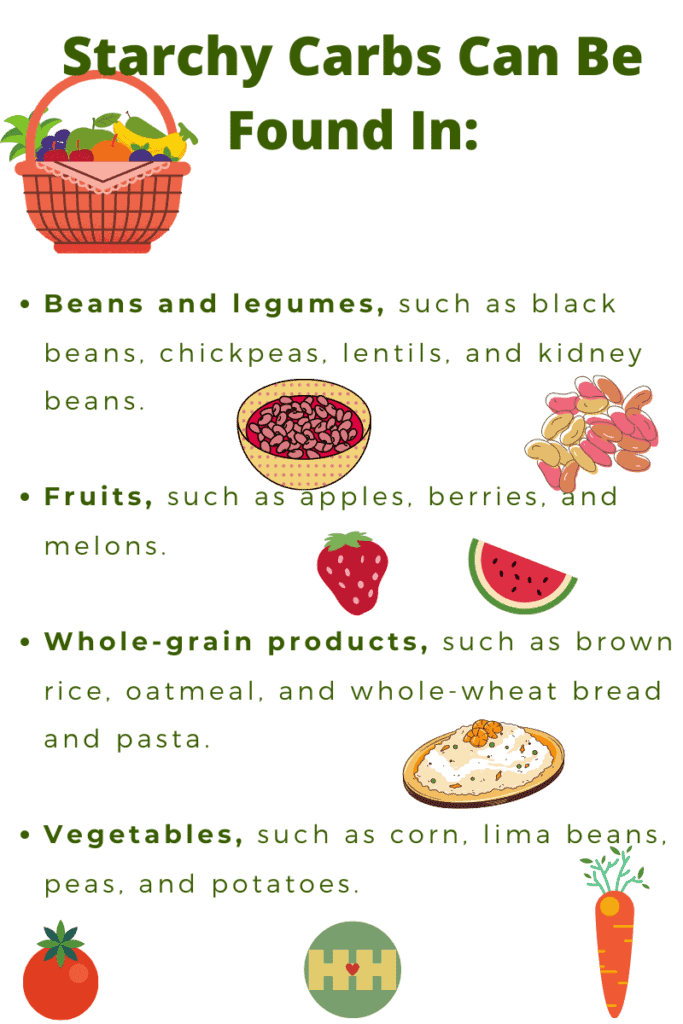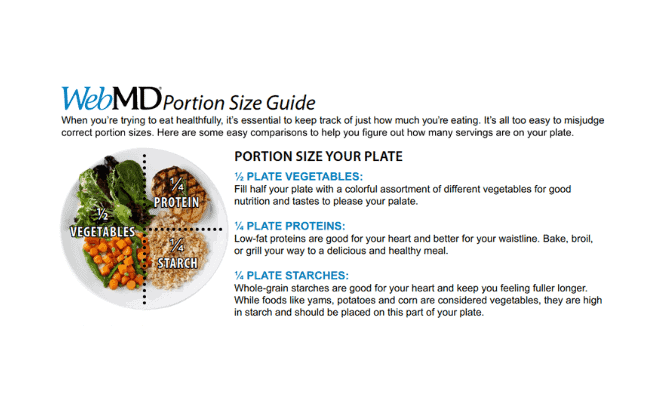Are Carbohydrates Bad For Our Health? (Short Answer, No!)
Are carbohydrates bad for our health? Let’s find out together in this post.
My daily carbohydrate intake is something that I didn’t give much thought to before.
After all, I grew up learning at school that carbohydrate is one of the basic food groups that we should be consuming daily as a main source of energy to keep us going.
But as I started the Avocadu 21-Day Fat Loss Challenge, my mind started questioning the effects of carbohydrates (including sugar) in my diet.
Are Carbohydrates Bad For Our Health?
Carbohydrates are definitely not bad for our health. Only that we have to be careful in choosing which carbohydrates to consume. We should consume more complex or whole carbs in our diet and less simple or refined carbs.
What Are Carbohydrates?

According to MedlinePlus, carbohydrates (also commonly known as carbs) are sugar molecules.
Carbohydrates are one of the three main nutrients (macronutrients), together with proteins and fats, found in foods and drinks.
The 3 Major Types Of Carbohydrates
There are 3 major types of carbohydrates: sugars, starches, and fibers.
1. SUGARS – Are also known as simple carbohydrates because of their simple structures (shorter chains of molecules, hello chemistry class!) and because they are easier and quicker for our body to digest.
According to VeryWellHealth most of these carbs are processed in the small intestine, where enzymes break them down into individual components that then pass through the intestinal walls into the bloodstream to be used for energy.
Any sugar that isn’t used right away is converted to fat and stored. This is why eating foods with lots of added sugar can contribute to weight gain.
Medical News Today writes that those simple carbohydrates being easier and quicker to digest produce a spike in blood glucose, providing our bodies with a short-lasting source of energy.
There are 2 types of sugars:
- Naturally occurring sugars are commonly found in milk and fresh fruits.
- Added sugars are commonly found in sweets, canned fruits, juices, and sodas. Sweets include things like pastries, candy bars, and ice cream.

According to Cleveland Clinic, our bodies process all sugars the same which means that our bodies can’t tell the difference between natural and added sugars.
But despite the sugars from foods with natural sugars, they also provide vitamins, minerals, and sometimes fibers.
Sugar has many different names. They can be listed on food labels as agave nectar, cane syrup or corn syrup, dextrose, fructose, sucrose, honey, molasses, fruit juice concentrates, or sugar. But they’re all sugar.
We can use the recommendation for sugar intake from American Heart Association (AHA) as a guide:
- Men should consume no more than 9 teaspoons (36 grams or 150 calories) of added sugar per day.
- Women should consume no more than 6 teaspoons (25 grams or 100 calories) per day.
Cleveland Clinic further states that too many simple carbs can contribute to weight gain, as well as increase the risk of diabetes, heart disease, and high cholesterol.
2. STARCHES – are made of longer, more complex chains of sugar molecules. These carbohydrates keep the feeling of fullness for longer because they take more time for our bodies to digest which makes our bodies’ blood sugar levels stable.

3. FIBERS is a type of carb that our bodies are not capable of digesting. Fiber is commonly found in fruits, vegetables, nuts, legumes, and whole grains.
Since fibers are not digestible by our bodies, they don’t directly provide energy to our bodies. But they are beneficial to the friendly bacterias in our digestive system.
Cleveland Clinic states that most of the fibers pass through the intestines, stimulating and aiding digestion. Fiber also regulates blood sugar, lowers cholesterol, and keeps us feeling full for longer.
Experts recommend that adults consume 25 to 30 grams of fiber every day, according to Cleveland Clinic.
What Are Simple Carbs And Complex Carbs?
According to Healthline, carbs are sometimes referred to as simple carbs (also known as refined carbs) and complex carbs (also known as whole carbs).
Simple carbs usually refer to sugars (the first type of carbs), they are the processed carbs that have been stripped of nutrients. While complex carbs usually refer to starches and fibers (the other 2 types of carbs) that are unprocessed carbs that contain vitamins and minerals found naturally in foods.
Some sources of complex carbs are quinoa, brown rice, oats; whole-grain bread, pasta, cereals, and crackers; lentils, chickpeas, kidney beans, green peas, and split peas; potatoes, sweet potatoes, and corn.

While some sources of simple carbs are sugar-sweetened beverages, white bread, pastries, and other items made with white flour.
How About Good Carbs And Bad Carbs?
Good carbs is just another term to refer to complex or whole carbs, while bad carbs for simple or refined carbs.
Everyday Health says that carbohydrates are not bad for us. Both simple and complex carbs are part of a healthy diet. We just have to be sensible in choosing the carbs we consume.
We are advised to skip low-nutrient desserts like ice cream and pastries and focus on healthy whole grains, fruits, and veggies to get the energy that our bodies need every day.
A suggestion from WebMD is that we should fill our plates with 1/2 portion vegetables, 1/4 portion proteins, and another 1/4 portion of starches or complex carbs.

Final Thoughts
I definitely agree that carbohydrates are not bad for our health, only that we have to choose wisely on what kind of carbs to consume.
We also need to pay attention to the portion of carbs we are consuming everyday, especially if we are one of those unfortunate ones who gain weight super fast (raising both hands!).
Even if carbs are not bad for our health, but I am now careful what carbs to consume and how much to consume everyday.
After doing the Avocadu 21-Day Fat Loss Challenge, I can definitely say that refined or simple sugars are the culprit for my weight gain.
You can read my weight loss story here where I lost 9.6 pounds and 1.5 inches of waistline in 3 weeks, just by healthy eating and not consuming simple carbs or “bad carbs”.
Do you give much thought to the carbs that you are consuming on a daily basis? If yes or no, what are the carbs that you eat most of the time?
Please feel free to share your thoughts in the comment section below.



Hi and thanks for sharing so much helpful, straight-talking information on carbs. I particularly appreciate the simple picture you gave of a plate with 1/2 veggies, 1/4 carbs, and 1/4 protein. I wish I could share that with my broader family and they would take it on board. More often than not their plates look more like 2/3 protein 1/6 veggies and 1/6 carbs. I think you are right that if we were just sensible about it and choose our portions carefully and wisely then we should not gain weight. Well, I think that applies to most of us. Unfortunately, the food industry does what it can to get us hooked on the simple carbs and before we know it we are all craving donuts. Best regards, Andy
Hello Andy, feel free to share the info with your family. I have already proven the being sensible with our food portions is really helpful especially if we want to lose some weight. And i agree with your stand about the food industry. They are constantly creating marketing strategies to make us hook in certain foods like fat-free, sugar-free, light, etc. We have to be vigilant with their traps!
Great information here. I now know what I have ignored for a long time. ‘Don’t have too many carbs!’
I knew that carbs were part of a balanced diet but now I understand so much more clearly what the difference between one type and the other really is.
A great article with very useful information that is very encouraging if wishing to live a more healthy lifestyle without too much weight gain.
Hello Mike,
I am glad that you find this article helpful. Now we know that not all carbs are created equal.:)
Hi Julai. Thank you for great post. I still have a feeling that we are not talking enough about healthy diet and articles like this are extremely useful. I believe that first rule of good diet is common sense. Everything is for people when we eating in reasonable way. Even ice creams wont do any harm if we treat them as exception or cheat meal and not as every day meal. And the same is with carbohydrates – our organism needs them, but we just should focus on fruits and vegetables, and limit sweets to special occasions.
Hello Cogito!
I definitely agree with your point! Healthy eating should not be scary, but we should learn that it’s eating everything we want in moderation and the not so healthy stuff for special occasions.
I absolutely love this article!! It is so amazing and educational — I definitely had the star it!
I never knew the difference between simple, refined carbs and complex, whole carbs until reading your post. And while very elaborate and comprehensive, my brain absorbed your facts like a sponge.
I enjoyed how you outlined what foods constitute simple sugars (candy, pastries ice cream) and what foods constitute complex sugars (fruits, vegetables, and legumes). Thus, with the amount of servings recommended from expert sources, it is clear what is necessary to lose weight and promote vibrant, robust health.
Also, I liked the part where you list the three types of carbs: sugars, starches, and fibers. It is nice to know that both starches and fibers make you feel fuller for a longer period of time, the latter of which also being indigestible, yet very helpful to friendly bacteria.
Above all, your post is very helpful to anyone who is remotely health conscious.
Hello betthebest,
I am glad that you find this post useful! I am also learning a lot of things as I read and write this article.
Awesome post, Julai! This article was definitely very helpful. I learned a lot about carbohydrates. It sounds like added sugar products aren’t necessarily bad themselves, but they’re bad when it comes down to our eating habits. Sweets often have the same amount of sugar as fruits, it’s just that they come with hardly any other things like fiber. Thanks for the article!
Yes, fruits are better even if they contain more or less the same amount of sugar as sweets because they contain vitamins, minerals, and fibers as well.